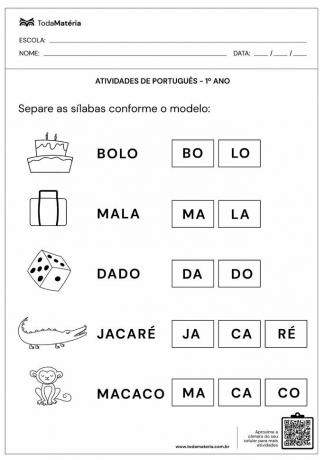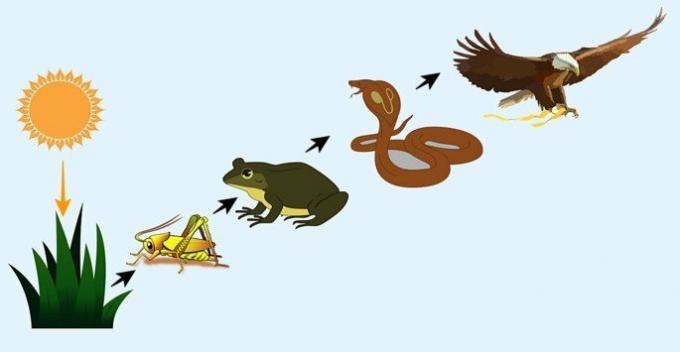We have created and selected 10 exercises about the Second Reign, for you to prepare for your exam, entrance exam and Enem. Happy studying!
Easy level
Question 01
The main event that marked the beginning of the Second Reign was:
a) The Confederation of Ecuador.
b) The Paraguayan War.
c) Parliamentarism in reverse.
d) The Majority Coup.
e) The Golden Law.
Through the Majority Coup, D. Pedro II was able to take office
Question 02
Which of the following events did NOT occur during the Second Reign?
a) Golden Law.
b) Christie question.
c) Cisplatin War.
d) Paraguayan War.
e) Praieira Revolution.
Question 03
Political conflicts in the Second Reign involved two parties: Conservative and Liberal. Regarding the characteristics of both, select the correct alternative:
a) The Conservative Party's main characteristic was the desire to end slavery in Brazil.
b) The Liberal Party's main characteristic was the desire to end slavery in Brazil.
c) Both had very similar characteristics, but what differentiated them was the fact that the conservatives wanted greater autonomy for the provinces.
d) Both had very similar characteristics, but what differentiated them was the fact that the liberals aimed for greater autonomy for the provinces.
e) All of the previous alternatives are incorrect.
Middle level
Question 04
The Second Reign was a period of internal and external conflicts. Regarding such events, select the INCORRECT alternative:
a) The Paraguayan War was a conflict involving 4 countries: Argentina, Paraguay, Uruguay and Brazil. Among the consequences of this war for Brazil is the strengthening of the military class in Brazilian society.
b) Abolitionist laws emerged late in Brazil. The Áurea Law, of 1888, was signed by Princess Isabel while D. Pedro II was in Europe, taking care of his health.
c) The Christie Question was a conflict involving the Brazilian imperial government and French military troops who attempted to invade Guanabara Bay, in the province of Rio de Janeiro.
d) The Praieira Revolution was a liberal conflict that occurred in the province of Pernambuco. It received its name from the street where the headquarters of “Diário Novo”, the liberal group’s main means of communication, was located.
e) The end of the Second Reign happened after D. Pedro II lost essential support for his government, such as the military, the Catholic Church and the landowners.
Question 05
Regarding the issues inherent to the Brazilian economy in the Second Reign, select what is correct:
a) The economy in the Second Reign was directly related to the country's industrialization process. It was at this moment in the country's history that the agrarian sector lost strength the most and made room for the metallurgical industries in the ABC region of São Paulo.
b) Coffee was the main product sold by the country during the period in which D. Pedro II commanded the country. With the money generated, important infrastructure works were carried out, such as the modernization of ports and the construction of railway lines.
c) The extraction of Brazilwood, very important for the Brazilian economy since the arrival of the Portuguese, remained the flagship of Brazilian exports in the Second Reign.
d) Based on D’s interest. Pedro II, Brazil in the Second Reign had the extraction of latex, in the north of the country, very privileged, reaching a level of great prominence in Brazilian economic gains until it became the main export product, still in the imperial period.
e) Considering the European influences on Brazilian colonization, the economy in the Second Kingdom was marked by an Industrial Revolution along the lines of those that had been happening on the old continent. Thus, this period marked the transition of a Brazilian economy from an agrarian to an industrial model, with electronics and mechanics as its main products.
Question 06
Some reasons were catalysts in the process of ending the Second Reign and coup d'état for the Proclamation of the Republic, leading D. Pedro II to lose the support of some of the main sectors of society that previously strengthened him. In this regard, list the columns below:
( ) Religious issue.
( ) Landownership issue.
( ) Military issue.
I. Abolition of slavery.
II. Prohibition of military personnel using the media to criticize the State.
III. Disrespect for papal orders.
a) III, I and II.
b) III, II and I.
c) II, III and I.
d) I, II and III.
e) I, III and II.
Hard level
Question 07
(AND EITHER) Retail sales clerks in Rio de Janeiro were among the first categories of workers to organize themselves into associations and demand the intervention of public authorities in mediating their struggles for rights. In the 1880s, clerks participated in the political arena and took to the streets with several others, such as republicans and abolitionists.
POPINIGIS. F. "All freedoms are brothers"; the cashiers and the workers' struggles for rights between the Empire and the Republic. Historical Studies, n. 59, Sep-Dec. 2016 (adapted). The actions of the workers mentioned in the text represented, in the capital of the Empire, a moment of:a) maintenance of employer rules.
b) detachment from liberal ideas.
c) strengthening labor contracts.
d) consolidation of union structures.
e) contestation of monarchical principles.
Question 08
(UNESP) The expansion of the coffee economy to the West of São Paulo, in the second half of the 19th century, and the great immigration to coffee farming brought changes in the history of Brazil, such as:
a) the strengthening of the subsistence economy and the maintenance of slavery.
b) economic diversification and advancement of the urbanization process.
c) the division of large estates in the Paraíba Valley and the crisis in the São Paulo economy.
d) the end of the oligarchic republic and the growth of the peasant movement.
e) the adoption of universal suffrage in federal elections and the centralization of power.
Question 09
(UCSal) The “Alves Branco” Tariff of 1844, as the decree of the Minister of Finance became known, was a character measure:
a) reformist.
b) monopolist.
c) protectionist.
d) mercantilist.
e) cooperative.
Question 10
(Enem 2021)
The disgusting task of carrying garbage and waste from the house to the squares and beaches was generally assigned to the only slave in the family or to the one with the lowest status or value. Every night, after ten o'clock, slaves popularly known as “tigers” carried tubes or barrels of excrement and garbage on their heads through the streets of Rio.
KARASCH, M C. The life of slaves in Rio de Janeiro, 1008-1856. Rio de Janero Cia das Letras, 2000.

The action represented in the image and described in the text highlights a daily practice in cities in Brazil in the 18th and 19th centuries characterized by:
a) Valuing manual work.
b) Reiteration of social hierarchies.
c) Sacralization of work activities.
d) Overcoming economic exclusions.
e) Resignification of religious heritages.
Keep studying:
- Exercises on slavery in Brazil
- Exercises on Colonial Brazil
- Exercises on the History of Brazil at ENEM
- Exercises on the Independence of Brazil
- Exercises on Hereditary Captaincies
- Exercises on the Coming of the Royal Family
SOUZA, Thiago. 10 exercises on the Second Reign (with comments).All Matter, [n.d.]. Available in: https://www.todamateria.com.br/exercicios-segundo-reinado/. Access at:
See too
- Questions about Brazil's Independence
- Exercises on Colonial Brazil
- 10 exercises about slavery in Brazil (with comments)
- First Reign
- Questions about the First World War
- Braille: what it is and who created it (with alphabet and numbers)
- Questions about Industrial Revolution
- Brazil Empire



